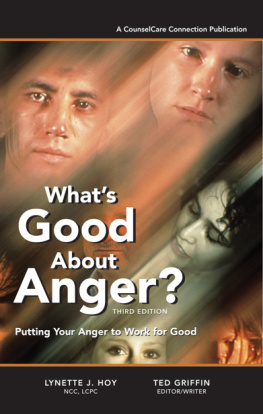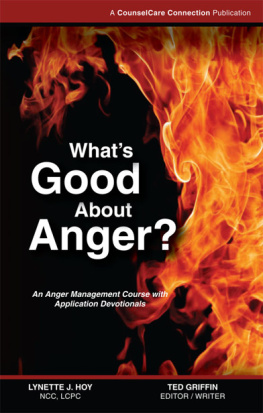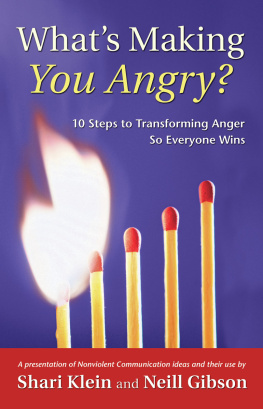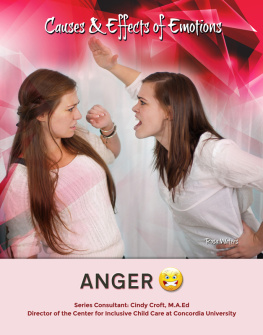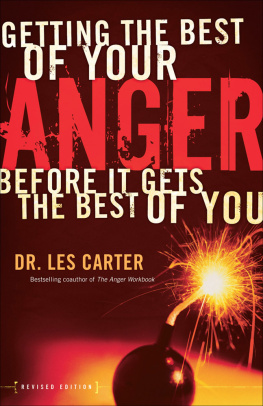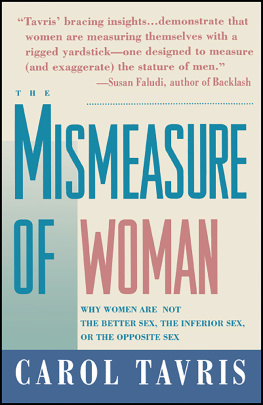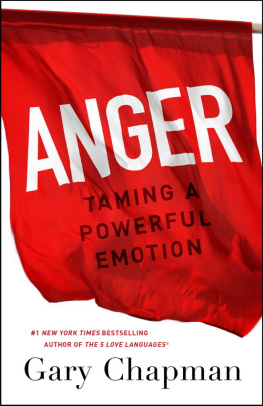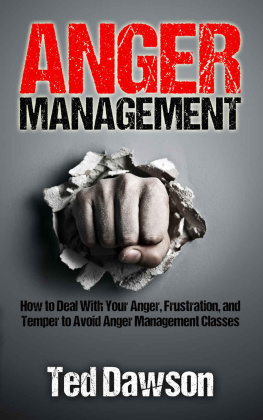Lynette J Hoy - Whats good about anger? : expanded anger management course with FAQs
Here you can read online Lynette J Hoy - Whats good about anger? : expanded anger management course with FAQs full text of the book (entire story) in english for free. Download pdf and epub, get meaning, cover and reviews about this ebook. City: Oak Park, Ill, year: 2006, publisher: CounselCare Connection, genre: Home and family. Description of the work, (preface) as well as reviews are available. Best literature library LitArk.com created for fans of good reading and offers a wide selection of genres:
Romance novel
Science fiction
Adventure
Detective
Science
History
Home and family
Prose
Art
Politics
Computer
Non-fiction
Religion
Business
Children
Humor
Choose a favorite category and find really read worthwhile books. Enjoy immersion in the world of imagination, feel the emotions of the characters or learn something new for yourself, make an fascinating discovery.
- Book:Whats good about anger? : expanded anger management course with FAQs
- Author:
- Publisher:CounselCare Connection
- Genre:
- Year:2006
- City:Oak Park, Ill
- Rating:3 / 5
- Favourites:Add to favourites
- Your mark:
- 60
- 1
- 2
- 3
- 4
- 5
Whats good about anger? : expanded anger management course with FAQs: summary, description and annotation
We offer to read an annotation, description, summary or preface (depends on what the author of the book "Whats good about anger? : expanded anger management course with FAQs" wrote himself). If you haven't found the necessary information about the book — write in the comments, we will try to find it.
Lynette J Hoy: author's other books
Who wrote Whats good about anger? : expanded anger management course with FAQs? Find out the surname, the name of the author of the book and a list of all author's works by series.
Whats good about anger? : expanded anger management course with FAQs — read online for free the complete book (whole text) full work
Below is the text of the book, divided by pages. System saving the place of the last page read, allows you to conveniently read the book "Whats good about anger? : expanded anger management course with FAQs" online for free, without having to search again every time where you left off. Put a bookmark, and you can go to the page where you finished reading at any time.
Font size:
Interval:
Bookmark:
What's Good About Anger?
Putting Your Anger to Work for Good
THIRD EDITION
Copyright 2010 by Lynette J. Hoy and Ted Griffin;
adapted from original and second editions.
Requests for information should be addressed to:
CounselCare Connection, P.C.
2000 Spring Rd., Suite 603
Oak Brook, Illinois, 60523
Original printing, 2002. Second edition, 2006.
ISBN 978-0-9717599-1-6
Unless otherwise indicated, Scripture quotations are from the ESV Bible (The Holy Bible, English Standard Version), copyright 2001 by Crossway Bibles, a publishing ministry of Good News Publishers. Used by permission. All rights reserved.
All rights reserved. No part of this book may be reproduced or transmitted in any form or by any means, electronic or mechanical, including photocopying, recording, or any information storage and retrieval systemexcept for brief quotations in printed reviews, without the prior permission of the publisher/authors.
CounselCare Connection Publications
Oak Brook, Illinois
Printed in the United States of America
by Richard Pfeiffer, MDiv, PhD
Whats Good About Anger? keeps getting better and better.
It has always been about the transformation of destructive anger into something much more positive. With the addition of a new Emotional Intelligence chapter it has become even more helpful to those of us who suffer from never having been exposed to a healthy way to approach our angry emotions.
Suffering from anger management problems can frequently be a very discouraging plight. For example, one of the difficulties with mismanaged anger is that there is always something that triggers it. But when we are ineffective in managing our anger, we become the unacceptable focus of disdain, and the issue that generated it all often gets lost. It can sometimes seem rather hopeless. How can we move from a psychic reaction that is seemingly life-robbing and destructive to a method of responding to our feelings of anger that is more life giving?
Lynette Hoy and Ted Griffin have created an anger management program that places an emphasis on hope. The Whats Good About Anger? program successfully shifts the hopeless approach focusing on experiences and expressions of anger as bad, to a method that says lets learn how to use the benefits of anger for productive purposes. So it is the modeling of an empathic approach to anger problems that allows participants to actually experience empathy and find new hope to grow and to develop higher levels of consciousness. This new edition offers practical solutions to anger problems in the form of helpful skills, concepts, and techniques to help anyone deal with anger more effectively. The program increases awareness of emotions and discusses emotional intelligence in a positive way.
The co-authors have touched all the bases of state-of-the-art anger management solutions, doing so in both a scientific and spiritually sensitive manner. You are in good hands here, and as you take this program seriously you will find the benefits of decreased stress, shame, distorted thinking, and also a lessening of anger itself. You will discover the hope that you have a moment to make a choice between either destructive punishing or creative problem-solving. We can grow! We can develop to higher levels of consciousness.
Rich Pfeiffer, August 29, 2009
Richard Pfeiffer, MDiv, PhD, is the President of the Board of Directors for NAMA, the National Anger Management Association: www.namass.org, the Director/Founder of Growth Central, and the author of eight Real Solution Workbooks.
Welcome to the third edition of What's Good About Anger?
It's hard to believe that there is anything good about anger, isn't it? As you read this book, we are hoping that you will discover, though, that you can learn to control your anger and use your anger for good purposes, with the help of your Higher Power. You can learn how to be good and angry.
This course is not only a book on anger management - it emphasizes the source of anger, triggers that provoke anger, and examples of how to express anger in healthy ways and shows you how to turn anger into problem-solving, assertiveness, conflict management, empathy, and forgiveness.
What's Good About Anger? is meant to assist people with differing experiences in all walks of life. People with "hidden" anger who might be feeling depressed. People with explosive anger. Even people who don't believe they have ever felt angry.
So take your time reading through this book and completing the questions and activities. We hope you will come to realize that anger can be a healthy emotion to motivate you to change.
INSTRUCTIONS FOR USE OF THE WHAT'S GOOD ABOUT ANGER? COURSE
Complete the Anger Survey. This will help you assess when, where and how you get angry and your general provocation scenario (GPS). The GPS describes typical situations in which you are triggered to become angry. Be honest about your feelings and experience with anger. After all, this course-work is personal and is geared to help you get an understanding of how you can grow in tackling any problem you may be having with anger in your life and in your relationships.
2. Then read through the book, completing the questions as you progress. Additional information is given on how to applyyour general provocation scenario (found in the Anger Survey) to the section in the course on "Handling Anger Effectively."
3. Keep a weekly anger log and progress report throughout the time you are reading this book. Each day think about and try one or two of the suggestions for handling anger. Especially apply the steps in "Handling Anger Effectively" to each situation. Write out your basic concerns, your options and requests.
4. Read "When to Take a Time-Out" in order to make a plan for the situations that come up that cause your anger to escalate more quickly and make you feel like you are losing control. If you still find your anger escalating, then lengthen your time-out period (example: one hour instead of thirty minutes).
5. Read and apply the communication skills taught in the assertiveness and managing conflict chapters. Complete the empathy and assertiveness inventories.
6. Evaluate your thinking with the cognitive distortions questions, and log your thinking patterns. This exercise will help you identify any false perspective you have about people or situations and challenge whether it is correct.
7. Read the new chapter on emotional intelligence, rate your level of empathy, and begin applying these important concepts. You will discover how growing in emotional intelligence is essential for redirecting anger into productive behaviors!
8. Finally complete the chapter "Plan to Change Your Life by Changing Your Thinking," and read the FAQs at the end of the book.
Additional aspects of this course will teach you to apply forgiveness, assertiveness, problem-solving, empathy, stress and conflict management skills, and foundational principles in order to put your anger to work for good.
Please answer the following questions as accurately and as completely as possible.
1. How often do you get angry? (Circle one that applies)
(a) daily.
(b) many times a day.
(c) a few times a month.
(d) several times a week.
(e) very rarely.
2. What happens when you get angry? (Circle all that apply):
I tend to:
(a) feel tense.
(b) withdraw.
(c) exercise.
(d) feel sick.
(e) overeat.
(f) distract myself.
(g) tell someone.
(h) raise my voice.
Font size:
Interval:
Bookmark:
Similar books «Whats good about anger? : expanded anger management course with FAQs»
Look at similar books to Whats good about anger? : expanded anger management course with FAQs. We have selected literature similar in name and meaning in the hope of providing readers with more options to find new, interesting, not yet read works.
Discussion, reviews of the book Whats good about anger? : expanded anger management course with FAQs and just readers' own opinions. Leave your comments, write what you think about the work, its meaning or the main characters. Specify what exactly you liked and what you didn't like, and why you think so.

